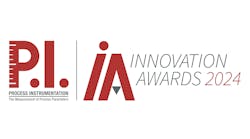The U.S. Environmental Protection Agency (www.epa.gov) is requesting comments on new information it has received about geologic sequestration of carbon dioxide. During geologic sequestration, carbon dioxide is injected underground for long-term storage. This technology is being considered as a method for reducing emissions of carbon dioxide to the atmosphere.
Under the Safe Drinking Water Act (SDWA), the EPA protects underground sources of drinking water from threats related to injection activities. The new information supplements the agency’s 2008 proposed rule that, if finalized, would create a new class of injection well and establish requirements under the authority of the SDWA to ensure that geologic sequestration activities do not endanger drinking water sources. The publication reviews research and data on geologic sequestration and presents an alternative the agency is considering related to the proposed injection depth requirements for carbon dioxide. In addition, the publication announces that the EPA is evaluating the need for a more comprehensive regulatory framework to manage the geologic sequestration of CO2.
The agency is requesting public comments for 45 days after publication in the Federal Register. For more information on geologic sequestration and how to submit comments, contact www.epa.gov/safewater/uic/wells_sequestration.html.

